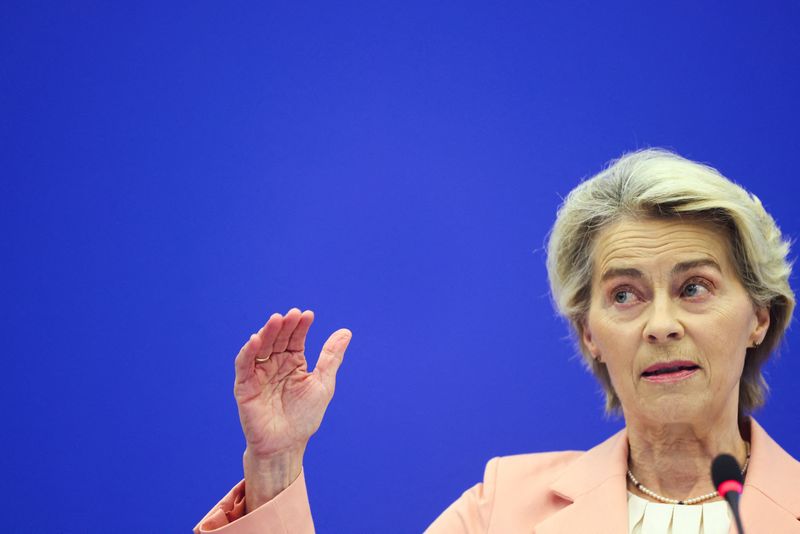By Jan Strupczewski
BRUSSELS (Reuters) - The European Commission wants to set up a fund to support strategic sectors, a document showed on Tuesday, as the bloc seeks to compete more effectively in new technologies, especially against China and the United States.
The proposal for a Competitiveness Fund was put forward in a letter to Budget Commissioner-designate Piotr Serafin from Commission head Ursula von der Leyen, who on Tuesday named her new team to lead policy-making for the next five years.
The European Union is concerned it needs to invest massively in technology to avoid being overtaken by global competitors and to avert economic decline.
Previous ideas of financing strategic spending through joint EU borrowing, building on the experience of the 800 billion euro($890 billion) post-COVID recovery fund, have met with resistance from the bloc's wealthier northern countries, including Germany and the Netherlands.
Von der Leyen said the EU's net long-term budget for 2028-2034 should better use the money at its disposal through leveraging, or attracting private funds to boost the impact of national spending.
The letter did not specify where the money would come from or the amount.
"I want you to develop a new approach for a modern and reinforced EU budget, moving to a policy-based budget from a programme-based budget," von der Leyen wrote.
The EU's long-term budget is around 1% of EU GDP. Roughly one third of that supports EU farmers, one third seeks to equalise living standards across the 27-nation bloc and the rest is spent on other policies.
This division has been criticised by some member states because it does not give the EU enough resources to spend on policies to adapt to the changing environment - climate change, security and defence or industrial policy - and instead focuses on support programmes.
EU enlargement, which might start during the 2028-2034 period, will be a further challenge, especially if the budget's structure remains unchanged, EU officials have said.
Von der Leyen said there could be a stronger link between the cash EU regions get from the EU budget and reforms and investment, an idea officials said would be likely to attract criticism from some EU members.
The EU budget gets money from customs duties, a share of the value added tax collected by EU countries, from unutilised plastic packaging waste and national contributions based on GDP.
The letter said it would have to find new sources of EU income, called "own resources" in EU jargon.

Expected new income sources include a share of revenues from the CO2 emissions trading system, a tax on goods imported from outside the EU from countries that do not observe the same climate-friendly regulations and a cut of the tax on company profits, but officials said that will not be enough.
($1 = 0.8991 euros)